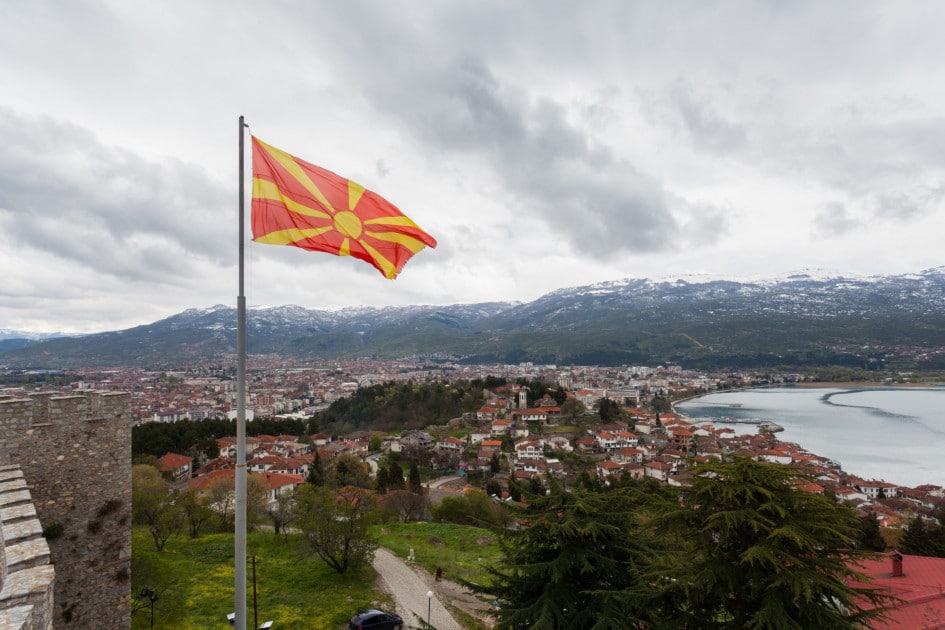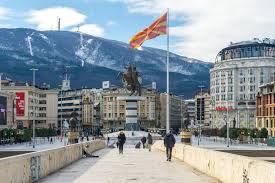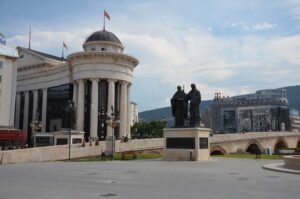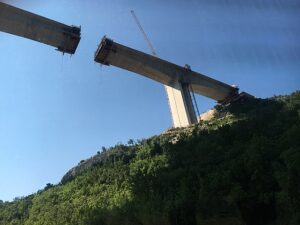Yesterday on Wednesday April 25, the first round of much-anticipated presidential elections took place in North Macedonia. The results show a strong backing for the right-wing nationalist VMRO-DPMNE candidate Gordana Siljanovska-Davkova. Together with SDSM-candidate Stevo Pendarovski, they will enter into second-round run-off on May 8. Seven candidates ran for the largely ceremonial position, with the political campaign focusing on EU accession, rule of law, fighting corruption and reducing poverty. The May 8 run-off will be combined with parliamentary elections and are considered crucial for North Macedonia’s EU future.
Results
With 92% of the votes counted, Siljanovska-Davkova (VMRO-DPMNE) is ahead with nearly 40% of the votes, before Stevo Pendarovski (SDSM) with nearly 20%. Pendarovski is followed by a SDSM-allied candidate of the ethnic Albanian minorty – Foreign Minister Bujar Osmani – who has 13.6%.The two candidates with most votes in the first round proceed to the second round – unless one candidate achieves a majority of 50%. This is not the case, so Siljanovska-Davkova and Pendarovski will move to a head-to-head on May 8.
Siljanovska-Davkova gained around 45,000 votes compared to 2019 – when she also ran for president. Pendarovski, who won in 2019, lost around 140,000 votes. While performing well in rural areas as expected, Siljanovska-Davkova also won quite comfortably in urban areas such as Skopje-Centar and Skopje-Karposh with high turnout. Overall, turnout was 49.75% – higher than 5 years ago (41.67% in the first round).
Expectations for May 8
Pendarovski and SDSM are up for a big challenge to win the second round. It is projected that he needs the full combined Albanian parties’ vote (around a quarter of North Macedonia’s population) plus 40% of the votes from nationalist ZNAM and Levica constituencies. Especially on the latter, this seems to be difficult – as these voters generally prefer VMRO-DPMNE over SDSM. In any case, the combination of parliamentary and presidential elections on May 8 seems to favour Pendarovski – as he can rely on the Albanian parties’ voters who will now turn up for parliamentary elections as well, while none of their candidates are participating in the presidential run-off.
For now, North Macedonia seems to be heading for a VMRO-DPMNE victory in the presidential run-off – but much can change in a political campaign, especially as crucial parliamentary elections are coming up as well. This will have key implications for North Macedonia’s EU trajectory as VMRO-DPMNE is not willing to fulfilling proposals to lift the Bulgarian blockade to starting accession negotiations. Follow the analysis of the EFDS on this via our website – or via these election updates and overviews we will send you in the upcoming weeks.



